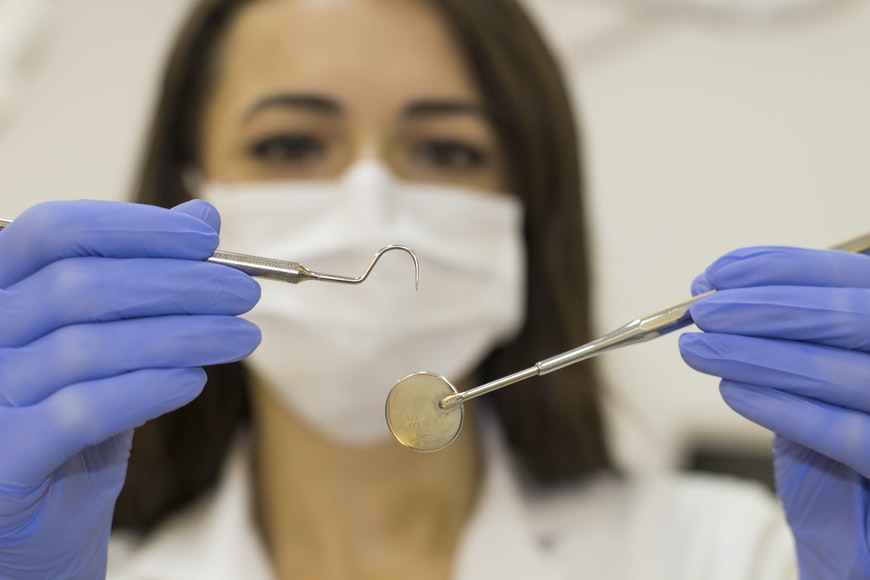Can You Sue A Dentist For Medical Malpractice?
While most people associate medical malpractice with doctors, dentists and orthodontists can also be sued when they fail to meet the acceptable standard of care. Dental malpractice occurs when the oath of ethics’ first rule: ‘Do no harm’ is broken.
Infections after a dental operation or surgery are unexpected but not unheard of. Some infections are unavoidable, while others are caused by the dentist’s or their staff’s mistakes like failure to obtain informed consent for surgery or refer to a surgeon or other specialist. Thus, if a dentist’s hygienist or other help harms a patient, the dentist may be accountable for improper supervision.
Due to the complexity of medical negligence, a patient may be intimidated by the thought of pursuing legal action. However, significant infections requiring hospitalization, incision, loss of earnings, and drainage may warrant a dental malpractice case. A dental malpractice lawyer will be able you here.
Contents
Some Other Reasons For Filing A Lawsuit Against A Dentist

Dental malpractice is also known as dental negligence. Dentists might be sued for various reasons as long as dental work is neglected. Among the grounds to sue a dentist are:
- A misdiagnosis occurs when dental disease is misjudged, resulting in worsened symptoms or unnecessary treatment.
- An abscess is a pus-filled pocket caused by a bacterial infection in the mouth. If your dentist misses this and it spreads to your jaw or turns into sepsis, you have every right to sue.
- Extraction of the wrong tooth. The dentist may extract or treat the false tooth. These errors might lead to repeated surgeries and unneeded suffering.
- Incorrect dental procedure. You can file a case when the dentist performed a faulty procedure, undertake unnecessary surgery or other invasive treatments, use non-sterile dental instruments, or harm a patient’s teeth, nerves, or jawbone while treating them.
- Improper administration of anesthesia. Anesthetics are often used in dental treatment. During a procedure, dentists may use too little or too much anesthetic. Without enough anesthesia, extreme pain occurs. Too much anesthesia may cause brain damage, vomiting, suffocation, or death.
- Oral-nerve injuries. Nerve injury can cause loss of saliva control, tongue tugging, and pain in the eyes, jaw, cheeks, or forehead. If a dentist dismisses these signs, you can sue for medical malpractice. If you have any of the symptoms listed above, you may be able to file a dental malpractice claim.
If you have any of these symptoms, see a doctor immediately. Early treatment may prevent further damage. In addition, seeing a doctor may also help your medical malpractice case. Again, to be eligible for compensation, you must show that a health care provider’s negligence hurt you. This is easier if you see a doctor as soon as you notice symptoms.
How Do I Sue My Dentist?

To sue your dentist for malpractice, you must hire a lawyer. They can determine if you have a case and how to proceed. Your complaint must elaborate on your experience as a victim of malpractice. Moreover, you should state the court’s jurisdiction and that your claim is based on medical misconduct. Then you get to work gathering evidence and preparing for trial.
Documentation is a crucial defense in dental malpractice cases. Dental records must include a precise chronology, future treatment plans, and critical dentist-patient contact.
A lawyer will need your dental records, X-rays, and any records about your dental treatment. It will be decided whether your treatment was poor or not after reviewing all evidence. Remember that it will be difficult for the defense if some pages are missing, inconsistent, or unclear. Therefore, be careful and thorough with your dental records.
Dental Malpractice & Settlements Frequently Asked Questions

I. Is It Possible To Seek A Refund From The Dentist?
Seeking a refund is often a bad idea because treatments are permanent on a dentist’s record, so many dentists are reluctant to offer them. You can seek the assistance of a dental malpractice lawyer to file a case and get compensated for the damage.
II. Is It Difficult To Prove Dental Malpractice?
It depends on the case. It’s not a problem if you have evidence of dental malpractice and your damage was caused by negligence. However, certain situations are more challenging than others, especially when the evidence is weak and you need to seek the assistance of other professionals.
Moreover, dentists can successfully defend dental malpractice claims. One example is comparative negligence. If the defendant can show that the plaintiff caused their own injuries, the court may give each side a share of fault.
Another typical defense is the state’s limitations period. Dental malpractice cases must be filed in court promptly. The statute of limitations may prevent compensation for personal injury claims filed after a specified period depending on the state.
Extensive expert testimony will be necessary to evaluate whether or not the dentist’s actions fell below the standard of care. The court will also assess if the injury can be addressed and corrected easily.
III. What Can You Sue For Dental Malpractice?
In medical or dental malpractice cases, you can seek compensation for ongoing dental expenses, domestic care, and loss of income. You may be entitled to compensation for your pain and suffering.
IV. How Long Does A Malpractice Suit Take To Settle?
Regrettably, there is no defined deadline for a dental malpractice case. It can take months or even years. If your dentist has injured you, you should immediately call a qualified dental malpractice lawyer.
IV. Things To Ponder
The patient bears the burden of proof in cases of dental negligence. Not liking a procedure’s outcome is not grounds for a lawsuit. You must prove that the damage was caused by negligence. It must also be an act against recognized oral health care guidelines. Meaning there’s no other dentist who would have done it the same way. A scenario that does not meet these conditions is not considered malpractice.
Conclusion
A medical malpractice claim or lawsuit must consider the factors mentioned earlier. A dental malpractice lawyer can help you determine your damages. They will also analyze your case and discuss your legal options if you are unsure whether to file a claim.
Read Also:
- What You Can Do When Medical Devices Malfunction
- Can I Claim Personal Injury Compensation?
- What Are the Adverse Effects of Depression Treatment
- How Important is Medical Indemnity Insurance for Medical Professionals?



